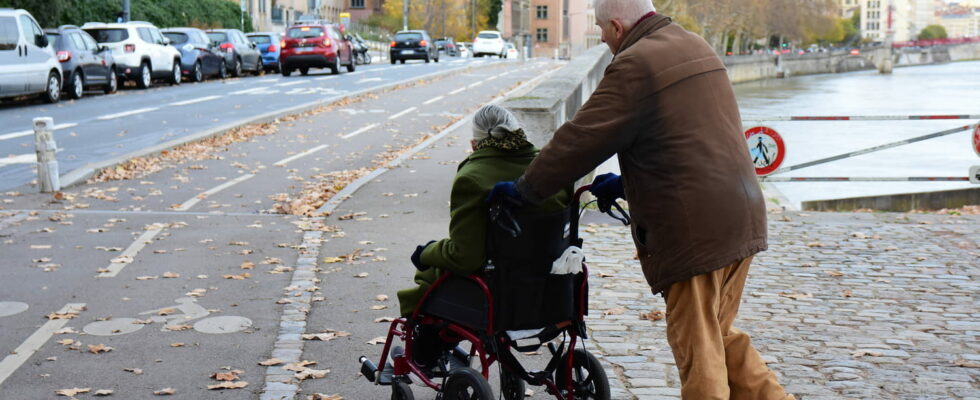Emmanuel Macron announced the full reimbursement of wheelchairs. That said, the public authorities still have work for the integration of people with reduced mobility.
This Thursday, February 6, Emmanuel Macron announced that wheelchairs will now be fully reimbursed by Social Security from December 1. “As of tomorrow, the list of all the armchairs that will be taken care of will be released,” said the head of state in a Tiktok video this Thursday. He also guaranteed that this list was “very wide”. Even “more specific” armchairs, like those used for disabled people, are concerned after a “prior agreement” with Social Security, within a maximum of “two months”. A real opportunity in view of the price of wheelchairs.
An armchair can, in fact, cost up to 10,000 euros and an electric up to 50,000 euros. Health insurance reimburses only part: up to 600 euros for manuals and up to 5,200 euros for electricity. The rest payable can therefore quickly be substantial, knowing that a million people use it in France, whether people with disabilities or reduced mobility. To guarantee adapted models, the doctor’s prescription will make the needs of each patient, allowing supplements if necessary, such as a headrest for example, specifies RTL.
An expected but insufficient reform?
This measure was, however, a year of delay: Emmanuel Macron had held such a promise in April 2023 for effective care as early as 2024. The associations were still delighted with this long -awaited announcement. APF France Handicap praised in a press release a “reform much awaited by people with disabilities because it is essential for their autonomy. It is time that each user benefits from the wheelchair who is adapted to him in order to guarantee his health, his good- Being, his dignity “.
However, the fight does not stop there. In a few days, it will be the 20 years of the disability law of February 11, 2005. “People with disabilities are still, on a daily basis, prevented and deprived of their fundamental rights as moving freely, going to school, working , healing, having accommodation, leisure, an intimate, emotional and sexual life, “shared APF France Handicap which calls on February 10 to a Place de la République rally from 5.30 p.m. It claims in particular that companies act on accessibility and discrimination, that the State respects “its commitments in terms of human rights and ceases to sacrifice them for budgetary reasons” and that each citizen refuses stereotypes.
The accessibility problem is often one of the black dots highlighted: according to a 2020 study of the association, nine people with disabilities out of ten “experience accessibility difficulties” during their trips. The list of their galleys is long. 6 blackheads make the daily life of the disabled: sidewalks that are too high, stairs impossible to climb, elevators that are too narrow or broken down, hidden and too small toilets, reserved parking spaces not respected or public transport without ramp, it takes many forms . In 2023, several activists from the collective Les Dévalideuses blocked the entrance to a Parisian metro, denouncing the lack of access to this means of transport for people in wheelchairs. 93% of metro stations were in fact inaccessible to them.
